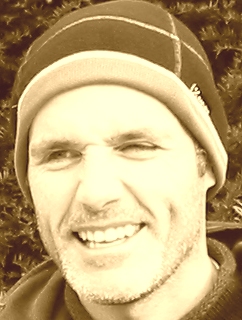When the skies fell silent
Silent nights, genuinely clear blue skies and the sense that nature is finally fighting back… Am I the only one who enjoyed Iceland's volcanic eruptions of late?
28 April 2010
Humanity's obsession is to create order in a world that is essentially chaotic. Earthquakes, tidal waves and now volcanic eruptions are, and have always been, just round the corner. And yet, the master species – as I'm sure we'd like to be recognised – thinks it can create laws, charters and ideas to govern what is essentially ungovernable… nature.
Attempts to mitigate such disasters are always well intended but usually turn out to be pretty pointless. People still die, planes get grounded, businesses go broke, and politicians and leaders make ever-more grand statements on how it will be prevented next time. If it weren't so tragic it would definitely be comical.
Especially when you think that seemingly our most successful effort to have a real, discernible impact on the planet so far has been to bugger it up with greenhouse gases causing what most people now believe to be man-made climate change.
And this is where Iceland's volcanic plumes come in, adding a somewhat ironic twist to this ill-feted human desire to control everything, to shape everything in our own image, if you will. The days the planes were silent left Europe's skies clearer than I can recall in 20 years, free of the lattice of contrails (those puffy trails that follow an aircraft) that disperse and create a haze that blights the sky.
What's more, the early morning and night flights that have become a part of my usual sleep-deprived existence, living not far from Belgium's busiest airport, also fell blissfully silent. Again, I'm looking for the downside to this eruption.
Sure, it left people all over the world stuck wondering if they would ever see their loved ones again – the last time the vocano Eyjafjallajökull fired up in 1821 it apparently lasted over a year. It even affected a colleague who was covering a conference I should have attended in Valencia on the Thursday and Friday when it first erupted. He e-mailed me with the subject line “stuck in Valencia”.
My first thought was that my Manchester-based colleague could do worse than being stuck in sunny Spain for the weekend, but when the story started to develop it really did look like he could be there for untold days… and on my payroll!
Anyway, long-story-short, he jumped a bus on Friday night to Lyon, a TGV to Paris, the Eurostar to London, a train to Derby and his wife drove down and picked him up in the early hours of Sunday morning. I've since learned that, compared to tens of thousands of stranded travellers, he (and as it happens my budget) got off quite lightly.
So despite this little personal hick-up, I have to say I've enjoyed the volcanic fallout. Alas, as I write this just days after the all-clear was given, plane after plane thunders overhead as arilines desperately try to clear the backlog of airmail, perishable tropical fruit and passengers.
Still, I wonder if this little taste of ‘quiet Earth' might leave a fallout of another kind: we've now seen that perhaps we can do without long weekends in Egypt, business confabs in California and New Zealand lamb.
Yes, the skies were silent but I could hear the faintest sound of a wind change.
Published with the author's permission. © Christian Nielsen. All rights reserved.



Christian, although I try to be as environmentally friendly as possible, flying is one of those things that I – and people like us who are in multicultural relationships and have family and friends spread out over a wide geographical area – would find difficult to live without.
Perhaps we can live without the contrails and noise and still fly if the Solar Impulse really takes off and solar-powered flight becomes a realistic possibility.
Robert, will also check out that book.
Robert,
I’ll check out Eaarth. Cheers for the remark.
Christian,
I just finished reading Eaarth, a new book by environmentalist Bill McKibben. His thesis is that we no longer live on good old Earth, but on a much tougher and less predictable post-climate-change planet called Eaarth. If he’s right, we’re going to have to cut back dramatically on all those contrail-producing flights and midwinter mangos from Mexico, whether we want to or not. So, maybe you’ll get to sleep better and enjoy those clear skies sooner than you think!